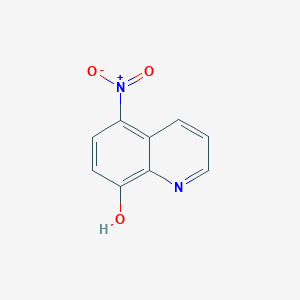The response rate of t-vec combined immunotherapy for advanced melanoma is as high as 62%
-
Last Update: 2019-11-28
-
Source: Internet
-
Author: User
Search more information of high quality chemicals, good prices and reliable suppliers, visit
www.echemi.com
At the annual meeting of the American Society of Clinical Oncology (ASCO) held in Chicago in 2019, a new research report showed that the response rate of immunotherapy using t-vec oncolytic virus combined checkpoint inhibitors, such as yevoy and keytruda, was as high as 62% The combination therapy is well tolerated and highly effective In most patients, the tumor shrank by more than 50% after the combined treatment Talimogene laherparepvec (t-vec; imlygic) has been approved by FDA for the treatment of stage IIIB, IIIc and IVA, as well as for patients with advanced unresectable melanoma These patients may have melanoma metastasis in their arms, legs, scalp, lymph nodes and even lung tissues T-vec oncolytic virus can be used as a single therapy to play a variety of roles in patients with limited conditions It is also expected to be used as a new adjuvant therapy in combination with keytruda, a PD-1 inhibitor, or yevoy, a CTLA-4 inhibitor, to treat patients who may not respond to checkpoint inhibitors T-vec oncolytic virus is a genetically modified herpes simplex virus type 1, which can be injected subcutaneously to specific tumor sites of patients, cleave cancer cells in these sites, and expose tumor antigens to the immune system At the same time, through these oncolytic viruses, we can change the tumor microenvironment of patients, re educate the immune system of patients, make the unresponsive tumor become the reactive tumor, and further activate the immune system against melanoma Medical research has found that patients who are unable to use checkpoint inhibitors do not have the right immune cells around their tumors Immunotherapy, such as checkpoint inhibitors, works only when a patient has a highly mutated tumor Highly mutated tumors can trigger an immune response, produce a large number of immune cells, and cause tumors to be infiltrated by a large number of immune cells (called "hot tumors") In general, a large number of immune cells around these tumors will be shut down when they encounter the checkpoint molecular protein, and cannot perform the killing effect Checkpoint inhibitor immunotherapy can prevent checkpoint protein molecules from shutting down the immune function of immune cells, so that immune cells in patients can play the role of recognizing and killing cancer cells again That's why inhibitors like PD-1 are effective in treating highly mutated "hot tumors." Unfortunately, 70% of tumor patients have "cold tumor", they have no immune cells around the tumor, and drug immunotherapy has no effect on these patients T-vec oncolytic virus can be used as a bridge to provide immune-mediated tumor killing therapy for those cancer patients whose immunosuppressive therapy is ineffective.
This article is an English version of an article which is originally in the Chinese language on echemi.com and is provided for information purposes only.
This website makes no representation or warranty of any kind, either expressed or implied, as to the accuracy, completeness ownership or reliability of
the article or any translations thereof. If you have any concerns or complaints relating to the article, please send an email, providing a detailed
description of the concern or complaint, to
service@echemi.com. A staff member will contact you within 5 working days. Once verified, infringing content
will be removed immediately.







